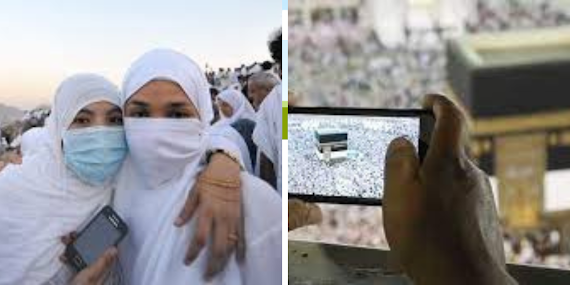Role of Hazrat Usman Ghani as caliph

Hazrat Usman Ghani was the third Caliph of Islam, and he ruled the Muslim world for twelve years from 644 to 656 CE. During his caliphate, Hazrat Usman Ghani made significant contributions to the development of the Islamic community, particularly in the areas of governance, religion, and social welfare. Here are some of the important aspects of his rule:
- Governance: Hazrat Usman Ghani introduced various administrative and organizational reforms to strengthen the Islamic state. He appointed governors and officials to manage the affairs of the provinces and established a system of taxation to fund public works and social welfare projects. He also standardized the Arabic script of the Quran, which facilitated the spread of Islamic knowledge and culture.
- Religion: Hazrat Usman Ghani played a significant role in the preservation and dissemination of the Quran. He authorized the compilation of a standardized version of the Quran based on the dialect of the Quraish tribe, which was the dialect of the Prophet Muhammad.
- Social Welfare: Hazrat Usman Ghani was known for his generosity. He donated generously to public works and social welfare projects, including the construction of mosques, public buildings, and roads. He also established a system of stipends for the poor and the needy, which helped to alleviate poverty and suffering in the community.
However, Hazrat Usman Ghani's rule was also marred by controversy and opposition.
Some of the key events during his caliphate include:
- The Siege of the Caliphate: Hazrat Usman Ghani faced opposition from various quarters, including some powerful tribes and political factions. In 656 CE, a group of rebels surrounded the Caliphate in Medina and demanded the removal of Hazrat Usman Ghani from power.
- The Uthmanic Codex: Hazrat Usman Ghani's standardization of the Quran was also a controversial issue, as some scholars and tribes objected to the use of the Quraish dialect. This led to the emergence of competing versions of the Quran, which were eventually suppressed by subsequent caliphs.
- The Appointment of Relatives: Hazrat Usman Ghani's appointment of his relatives to key positions of power also sparked criticism and opposition. Some accused him of nepotism and favouritism, which undermined his credibility and authority.
How the Hazrat Usman played an important role to protect Islam?
Hazrat Usman Ghani played a crucial role in protecting and promoting Islam during his caliphate. Here are some of how he contributed to the protection of Islam:
- Preservation of the Quran: Hazrat Usman Ghani took several measures to preserve and protect the Quran, which was the primary source of Islamic guidance and law. He ordered the compilation of a standardized version of the Quran based on the dialect of the Quraish tribe, which was the dialect of the Prophet Muhammad.
- By standardizing the Quran, Hazrat Usman Ghani ensured that the text was consistent and free from errors or deviations.
- Spread of Islamic Knowledge: Hazrat Usman Ghani also played a significant role in the dissemination of Islamic knowledge and culture. He established schools and learning centres throughout the Islamic world, which provided education and training in Islamic sciences, such as Quranic studies, Hadith, and jurisprudence. This helped to spread Islamic knowledge and values to a wider audience and ensured that the teachings of Islam were transmitted accurately and authentically.
- Strengthening of Islamic Governance: Hazrat Usman Ghani introduced various administrative and organizational reforms to strengthen the Islamic state. He appointed governors and officials to manage the affairs of the provinces and established a system of taxation to fund public works and social welfare projects. He also standardized the Arabic script of the Quran, which facilitated the spread of Islamic knowledge and culture.
- Seeing this, on the request of prophet Muhammad, Uthman ibn Affan purchased the well from its Jewish owner and made a waqf for all, Muslims and non-muslims. This well is still active and the Waqf tradition is still on-going.
- Defence of Islam: Hazrat Usman Ghani was also known for his bravery and courage in defending Islam against its enemies. He participated in several military campaigns, including the Battle of Tabuk, where he contributed generously to the financing of the army. He also established a system of stipends for the soldiers and their families, which helped to ensure their welfare and morale.
What kinds of difficulties faced Hazrat Usman Ghani have in Islam religion?
Hazrat Usman Ghani, like other caliphs of Islam, faced numerous challenges and difficulties during his rule. Here are some of the key challenges he faced in the context of Islam:
- Opposition from Political and Religious Factions: Hazrat Usman Ghani faced opposition from various political and religious factions during his caliphate. Some of the powerful tribes and political groups opposed his rule and questioned his legitimacy as the caliph.
- Economic and Social Instability: Hazrat Usman Ghani also faced economic and social instability during his rule. The Islamic State was expanding rapidly, which put pressure on the resources and infrastructure of the government. This led to social unrest and economic hardship for many people, especially the poor and marginalized.
- Military Threats: Hazrat Usman Ghani also faced military threats from external powers, such as the Byzantine and Sassanid empires. These threats required significant military resources and strategy to defend against, which put a strain on the Islamic State.
- Internal Rebellions: Hazrat Usman Ghani faced several internal rebellions during his rule, which challenged his authority and legitimacy. The most significant of these was the rebellion that eventually led to his assassination in 656 CE.


Comments
Post a Comment